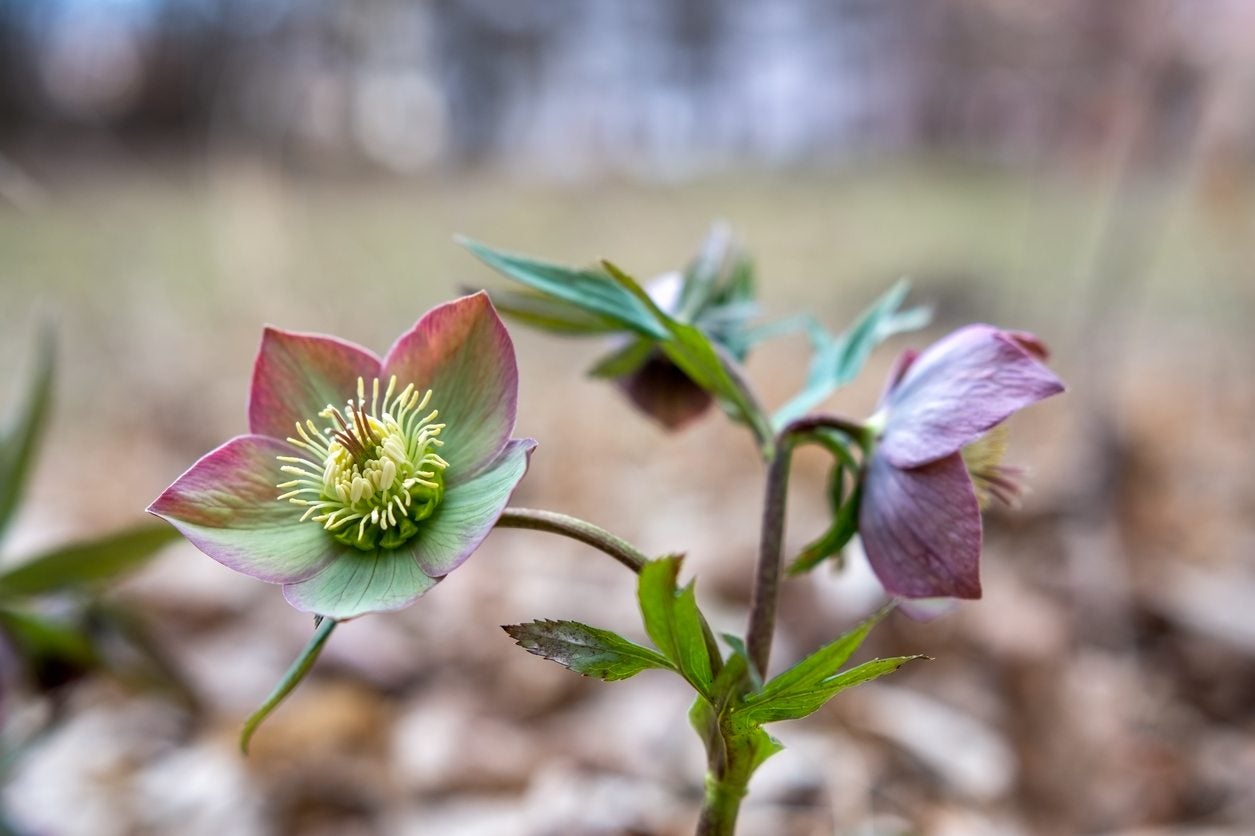Is Hellebore Toxic – Learn About Hellebore Poisoning Of Dogs


Is hellebore toxic? Helleborus is a genus of plants that includes a number of species commonly known by names such as Lenten rose, black hellebore, bear’s foot, Easter rose, setterwort, oriental hellebore, and others. Dog lovers frequently ask about hellebore toxicity and with good reason. All parts of the hellebore plant are toxic, and the same is true for all types of hellebores. In fact, through the years, hellebore poisoning has been the subject of legends involving murder, madness, and witchcraft.
Hellebore in the Garden
Although hellebore in the garden is beautiful, it can present a danger to pets. The plant is also harmful to cattle, horses, and other livestock but generally only when they are desperate and starving because sufficient feed is unavailable. If you aren’t sure about the existence of hellebore in the garden, or if you have any plants you are unsure of, show a picture to knowledgeable folks at a greenhouse or nursery. You can also ask experts at your local cooperative extension to identify unknown plants.
Dogs and Hellebore Toxicity
Generally, dogs won’t ingest a lot of hellebore because of the bitter, unpleasant taste (and some types also have a nasty odor). As a result, reactions tend to be fairly mild and severe toxicity is unusual. In most cases, a nasty taste and itching or burning of the mouth is the worst that will happen. It’s a very good idea, however, to call your veterinarian. He or she may direct you to induce vomiting or may tell you how to rinse your dog’s mouth in the case of pain and swelling. However, if you’re unsure how much of the plant your dog ingested, don’t wait. Take your pet to a veterinarian as soon as possible.
Symptoms of Hellebore Poisoning in Dogs
Typical signs of hellebore toxicity include:
- Abdominal pain, vomiting, and diarrhea
- Drooling
- Colic
- Depression and lethargy
- Pawing at mouth
- Excessive thirst
Dogs that ingest a large amount of hellebore may experience:
- Difficulty breathing
- Paralysis
- Low blood pressure
- Weakness
- Seizures
- Heart rhythm abnormalities
- Sudden death
It’s always a good idea to research beforehand about the plants in your home and garden to weed out those that can potentially harm your pets and especially small children.
Gardening tips, videos, info and more delivered right to your inbox!
Sign up for the Gardening Know How newsletter today and receive a free copy of our e-book "How to Grow Delicious Tomatoes".

A Credentialed Garden Writer, Mary H. Dyer was with Gardening Know How in the very beginning, publishing articles as early as 2007.
-
 Looking For Plants To Give You The Soft And Fuzzies? Try These 5 Fuzzy Leaf Plant Options
Looking For Plants To Give You The Soft And Fuzzies? Try These 5 Fuzzy Leaf Plant OptionsLovers of texture, drama, silver foliage and tactile plants will adore these special sensory garden additions. These fuzzy leaf plant options will leave you all aglow
By Susan Albert
-
 Get Ready For A Summer Of Hummers! Grow These Full Sun Hummingbird Plants and Flowers
Get Ready For A Summer Of Hummers! Grow These Full Sun Hummingbird Plants and FlowersIf you’re lucky enough to enjoy a sunny backyard, make sure you are maxing out on your pollinator opportunities and grow these full sun hummingbird plants and flowers
By Tonya Barnett